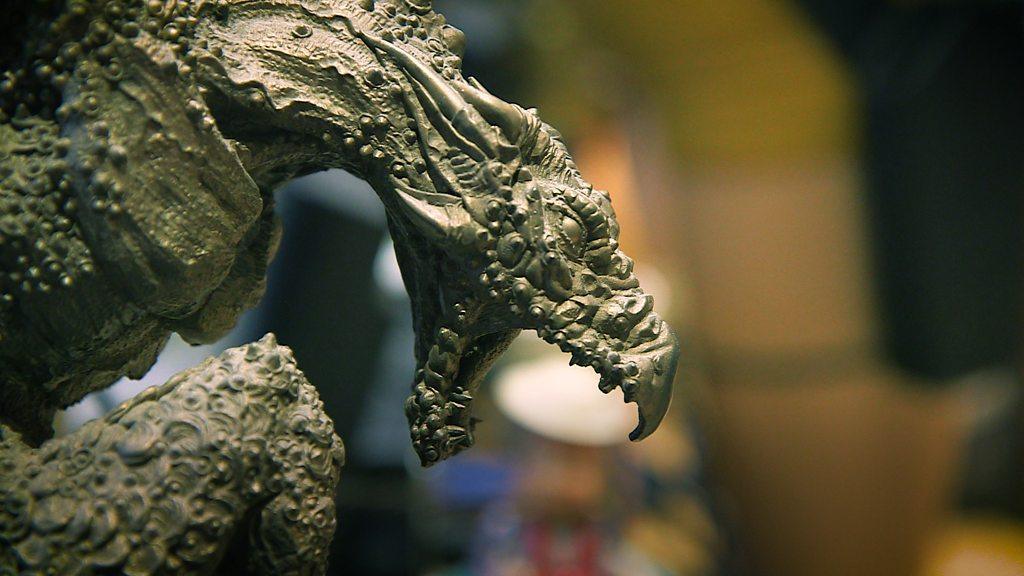Tabletop gaming: The therapy of fighting with miniature dragons
- Published
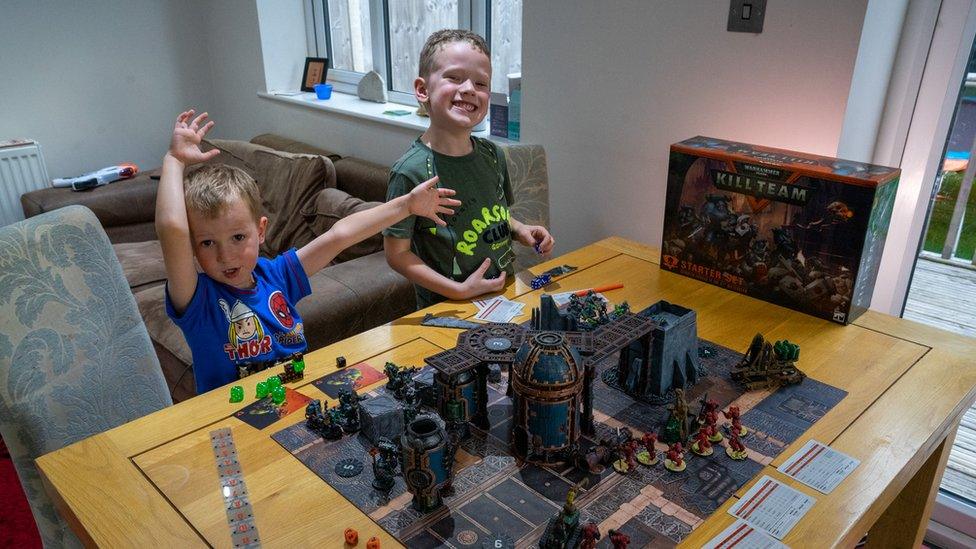
Gaming fan Gareth Beverley got his two sons into his hobby during the pandemic
It's no surprise that the leisure time enjoyed or endured by many in recent lockdowns has seen a boom for tabletop games and hobby firms. But is it a case of simply killing time or is there more to it?
In recent months, an army of monsters, dragons and crossbow-wielding goblins has marched across the living rooms of Britain.
Luckily for those of a nervous disposition, most of the combatants are static, stand at just over an inch (25mm) tall and belong to the world of tabletop gaming.
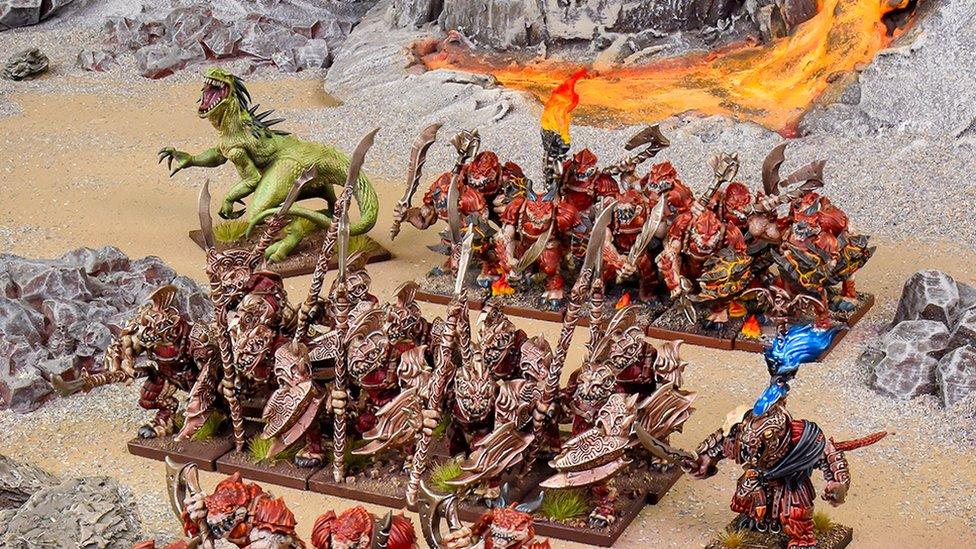
Tabletop games have always had a market but have gained popularity during the lockdowns of 2020 and 2021
The diminutive, demonic onslaught seems to have translated into particularly big money for games companies during the past 18 months.
Nottingham-based Games Workshop recently reported a pre-tax profit increase of 69%, totalling nearly £151m, for the past year on revenue of £353m.
It follows strong performances from other games and hobby firms in lockdown such as model train maker Hornby.
So how did the pandemic help miniatures grow massive?

'A creative, positive community'

Kieran Wilson said miniature games were his "saving grace" during lockdown
Kieran Wilson, 26, from Exeter, lost his job as a car salesman at the start of the first lockdown.
He started buying Games Workshop miniatures after finding himself with time on his hands and said they were his "saving grace".
"The last 18 months have been hard for everybody.
"I began painting the Warhammer models in my room and it grew from there.
"I found myself immersed in this creative, positive community," he said.
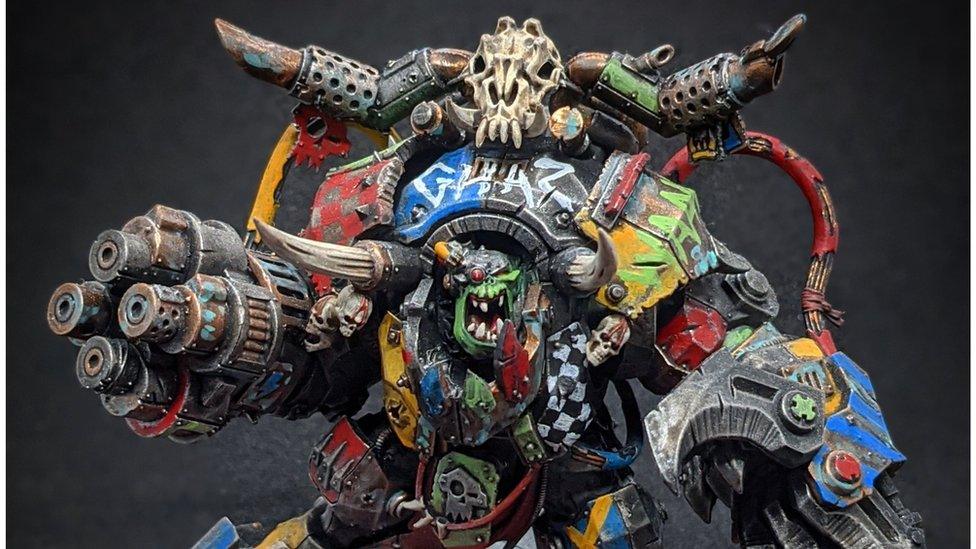
Kieran says painting the figures was therapeutic
Kieran, who has now found a job as a store manager for a major clothing firm, said he had suffered from depression and anxiety during the pandemic and found the process of building the figures, which he then paints before using in tabletop games, "very therapeutic".
"It's a good creative outlet; there's something for everybody.
"Over the last 18 months I've suffered with my mental health and it's been a saving grace.
"I'd implore anyone who is struggling to give it a go," he added.

'It's a way of having some family time'
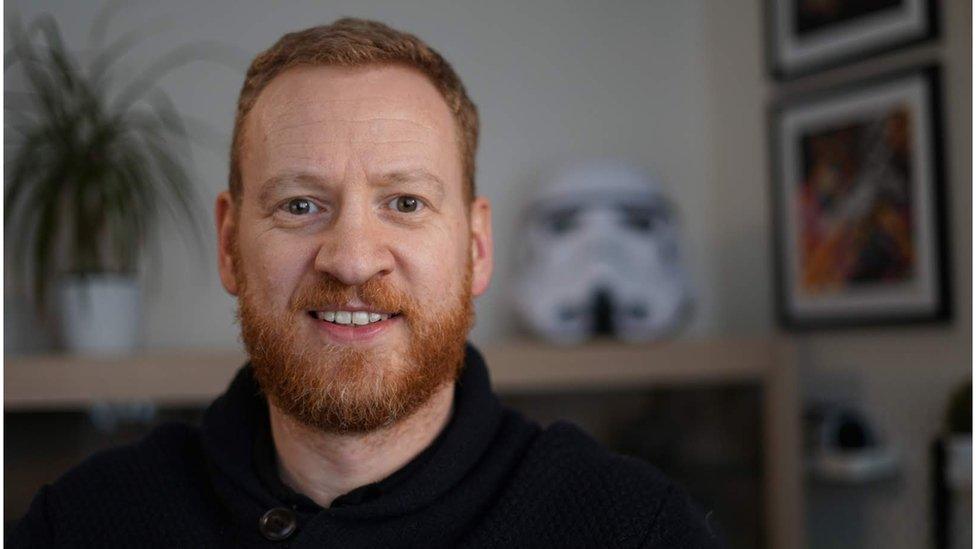
Gareth Beverley got his children into tabletop gaming - his own teenage hobby
Gareth Beverley, 40, from Southampton, found himself with very little spare time during the lockdowns.
He runs a drone company and had to juggle work with home schooling his children, aged six and four, while his wife Sam worked as a nurse.
Tabletop gaming - a resurrection of Gareth's teenage hobby - became a way of the family spending quality time together during the pandemic.
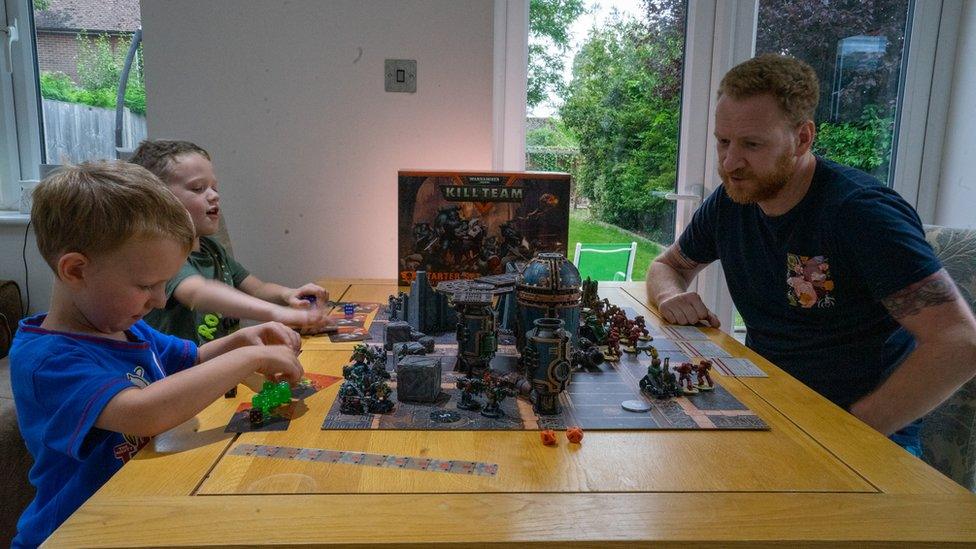
The family play with a smaller-scale game that, Gareth says, works better for kids
Gareth plays a small-scale game from the Warhammer series that, he says, works better for children.
"I got a starter pack and got my kids into it," he said.
"We would sit at the kitchen table and play, even introducing some Lego models, as a way as having some family time.
"I'd get my eldest son to add up the dots on the dice, so it was educational."
He also said painting the plastic models after the children had gone to bed was a good way of unwinding after work.
"When you're picking a colour scheme for a model, you're in the moment and disconnected from any other concerns or problems," he said.
"I get to be creative."

'It's a very happy place for me'
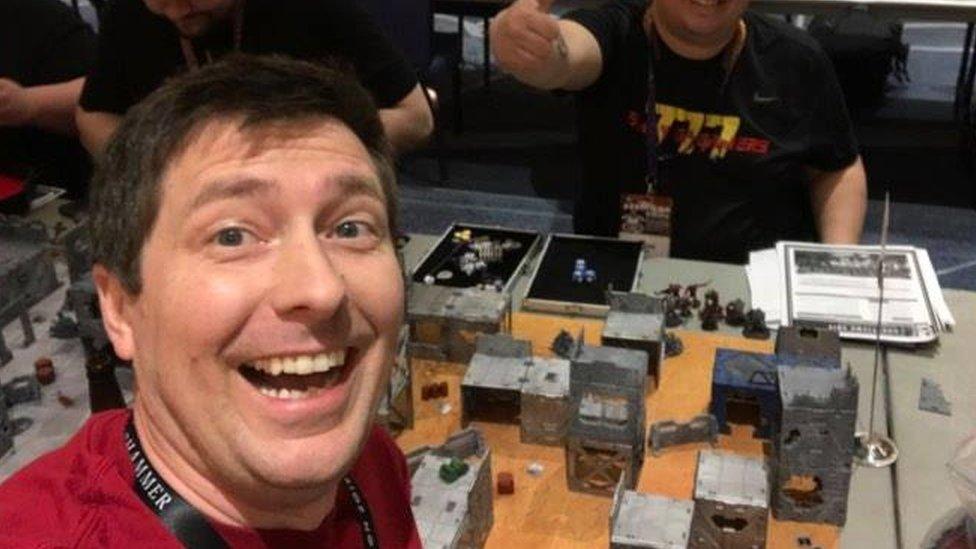
Andy Sharp started a regular online call to continue the social aspect of gaming during the pandemic
Before the pandemic, Andy Sharp, 43, an obstetrician, from Altrincham, near Manchester, did 95% of his gaming in his local club, where he would meet with friends each week to play a wide variety of tabletop games.
But as clubs were forced to close because of the pandemic, Andy - who has been playing games since the age of nine - feared he and his friends would start to lose touch.
During lockdown, he got people together to do a weekly "Hobby Hangout" online call, where gamers painted miniatures and chatted to each other.
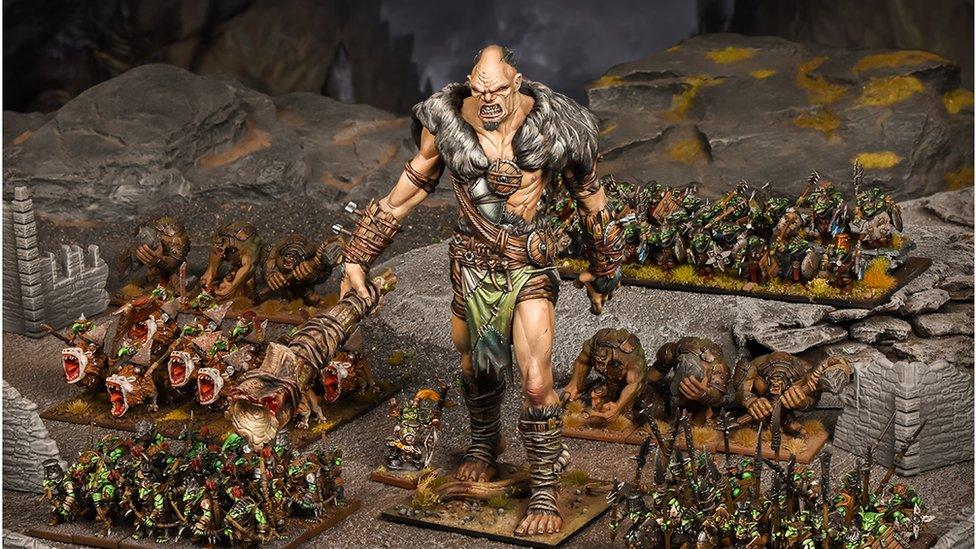
During the pandemic, people had time to paint whole armies and then connect with others online
He said the calls helped people connect and forget their troubles, with people joining the call from across the country and even from Germany.
He said: "We talk about the pandemic all the time.
"Lots of people on the call are working from home who wouldn't have been otherwise."
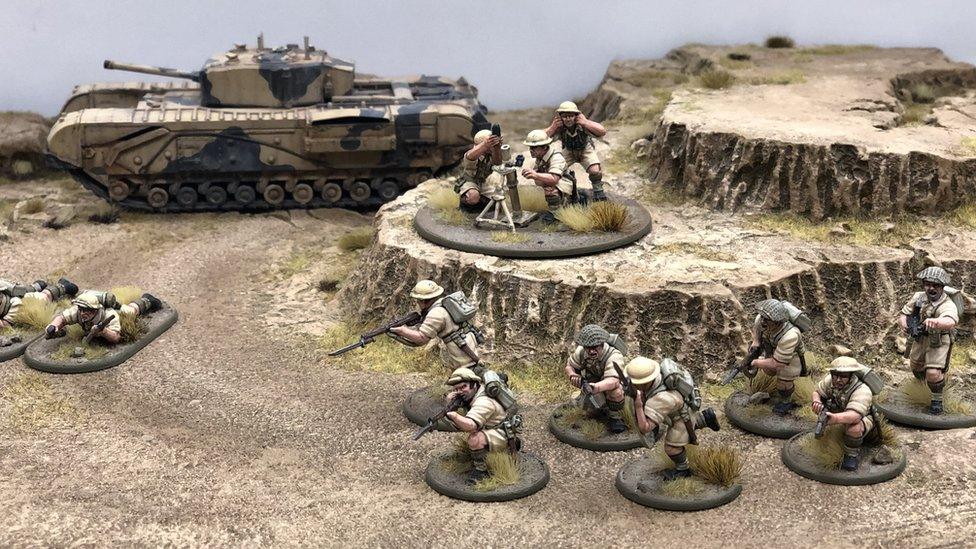
Painting the figures is described by fans as a kind of "passive relaxation"
Andy said he has found miniature gaming very helpful as a way to deal with the stresses of life.
"My hobby has always been a very happy place for me because life is complicated," he said.
"Everyone has their own challenges and I find painting miniatures helps with mental health and relaxation.
"When I sit down and paint my miniatures, I think it's called passive relaxation.
"Everything else just falls away, all the other worries you had all become irrelevant because you're focussing on a very small thing that you're doing."

'Fans around the world'
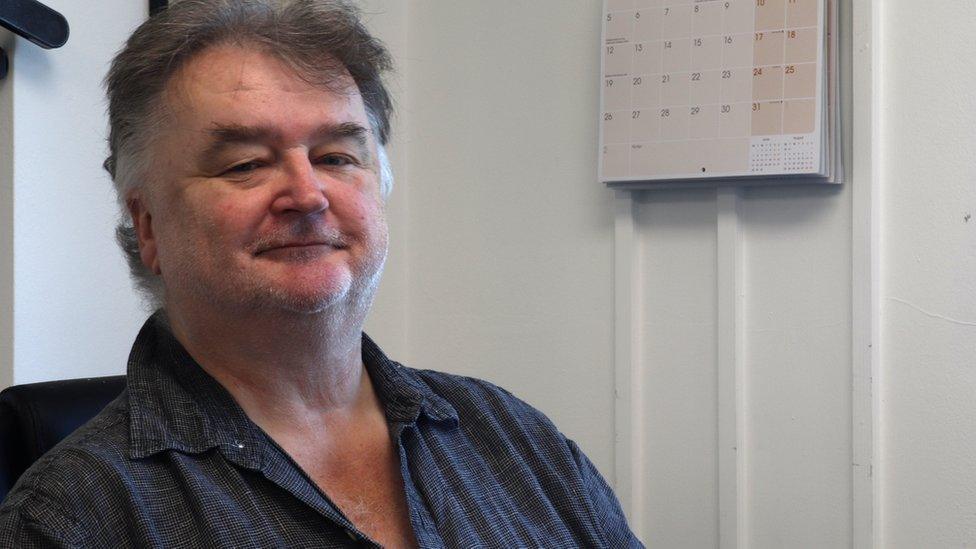
John Stallard says his company has benefited from people staying at home
Games companies say they have had messages from customers describing how much their products have helped them during the pandemic.
John Stallard, who runs Warlord Games, said his company, which produces historical and science fiction miniature games, saw a growth of 30% compared with this time last year.
"It's been a horrible year for so many people, so I feel slightly bad saying we've done well, but we have benefited from people staying at home and doing their hobbies," he said.
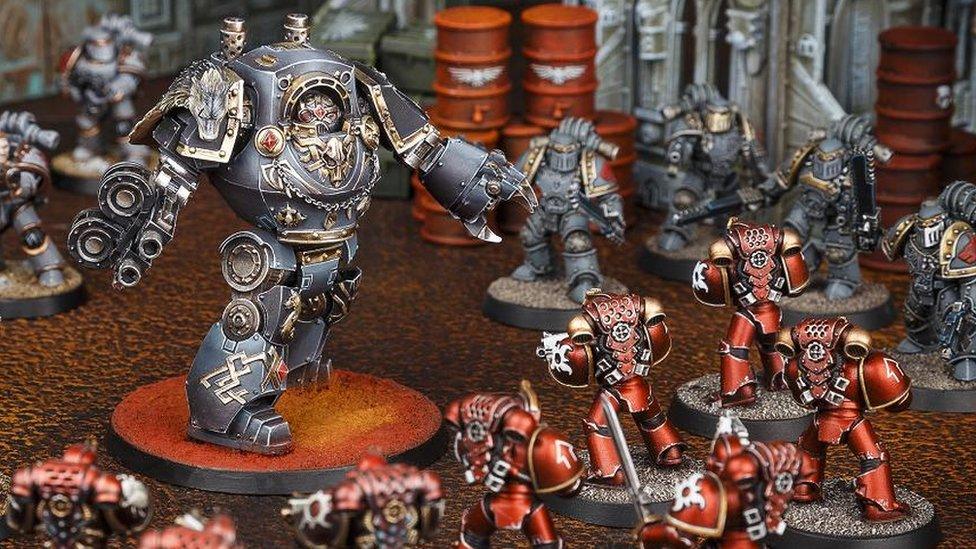
Games Workshop reported profits of nearly £151m for the past year
He said his firm, which is a stone's throw away from the Games Workshop headquarters in Lenton, Nottingham, has "had huge amounts of people coming in new to the hobby" since the first lockdown.
"We've had emails from people saying it's really helped their mental health or helped them to have family times painting with the kids," he added.
"We also have a lot of ex-soldiers write to us who say that the hobby has helped their mental health and to cope with trauma."
Tabletop games can provide a more obvious sense of accomplishment than video games, according to their makers.
"If you play a computer game, you don't have anything at the end but if you've painted an army, you've got it for the next 30 years, there's something physical to show for it," John said.

Ronnie Renton and Annie Norman say their companies enjoyed a boom
Ronnie Renton, CEO of Nottingham-based Mantic Games, said the social aspect of the games had become more global during the pandemic.
"Face-to-face gaming clubs and tournaments are a big part of the hobby and not having access to those was difficult for many people," he said.
"However, we saw people pull together and look for alternative ways to create that sense of community - whether that was creating groups on social media or even using websites to recreate the experience of playing tabletop games."
Ronnie said his firm had moved its regular open days, where people come and play games or attend seminars, online during the pandemic.
"It actually helped us engage with fans around the world. We had people in America waking up at 04:00 their time to join in," he said.
"Despite the time difference and huge distances, they still felt like they had somewhere to come and chat about their hobby, while taking their mind off events in the real world."
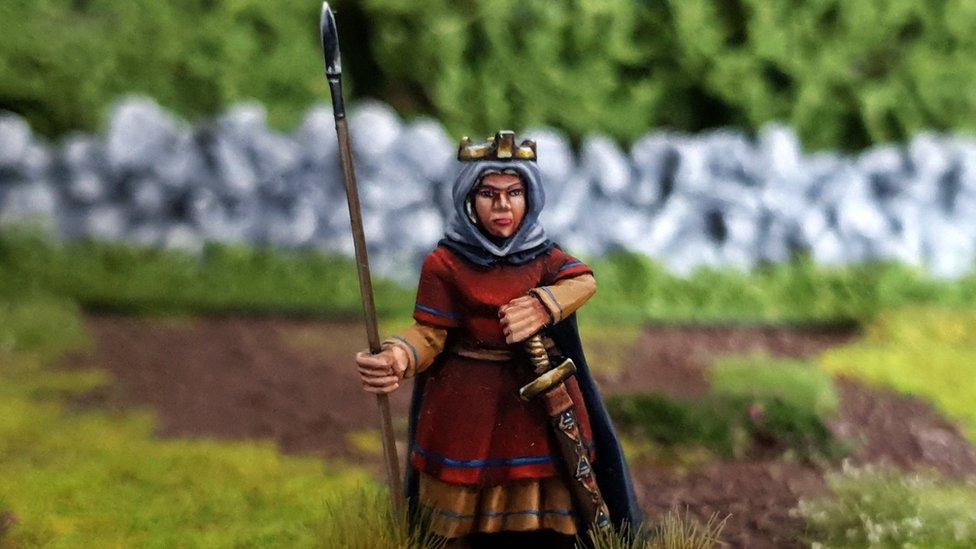
Annie Norman designs female war game miniatures
However Annie Norman, who runs Bad Squiddo, a company that designs female war game miniatures, said the past 18 months have not been plain sailing for everyone in the industry.
"It did pick up at the start of lockdown as people were being furloughed and staying at home, so there was a sudden boom," she said.
"But it definitely went back down again around the summer."
Annie, who runs the company by herself said people often see articles in the press about big games companies booming and assume the same is true for everyone in the business.
"I'll admit to feeling a bit of jealousy when I see articles about Games Workshop doing well," she said.
"But it's still a good sign for the industry in general."

Follow BBC East Midlands on Facebook, external, on Twitter, external, or on Instagram, external. Send your story ideas to eastmidsnews@bbc.co.uk, external.
- Published12 January 2021

- Published29 October 2020
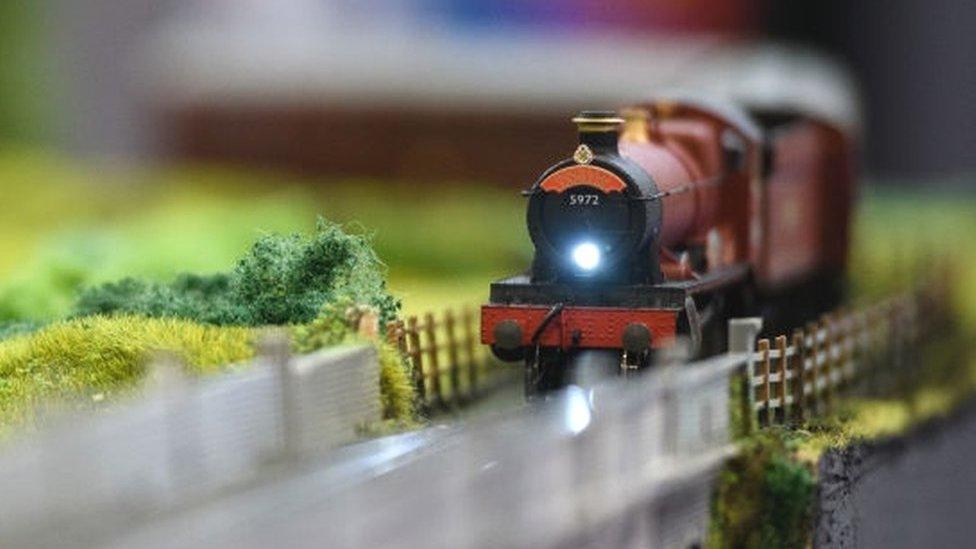
- Published19 October 2020
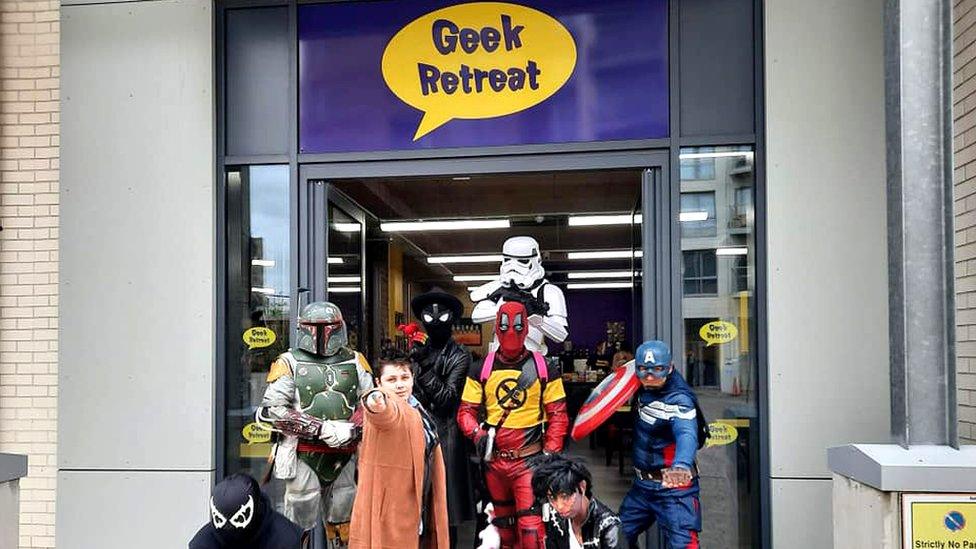
- Published8 June 2018
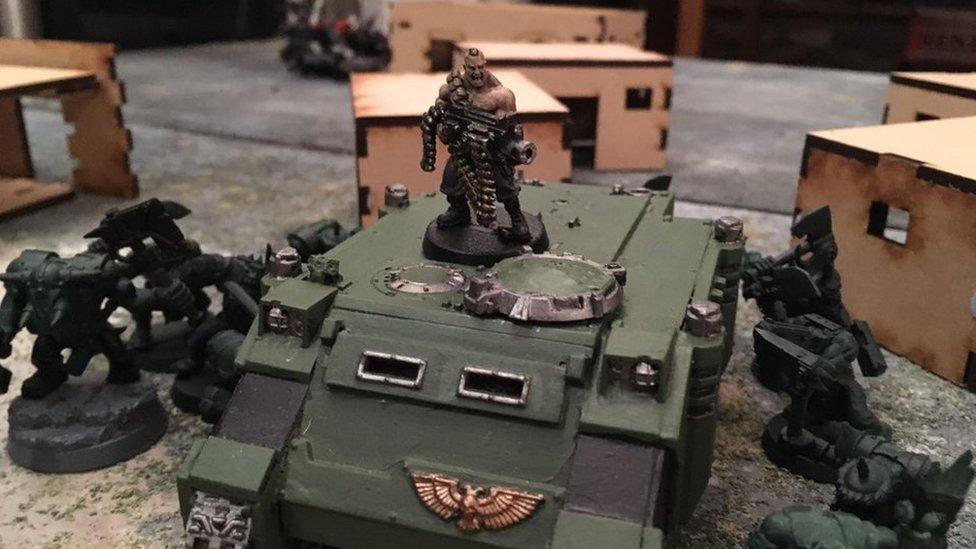
- Published26 May 2018
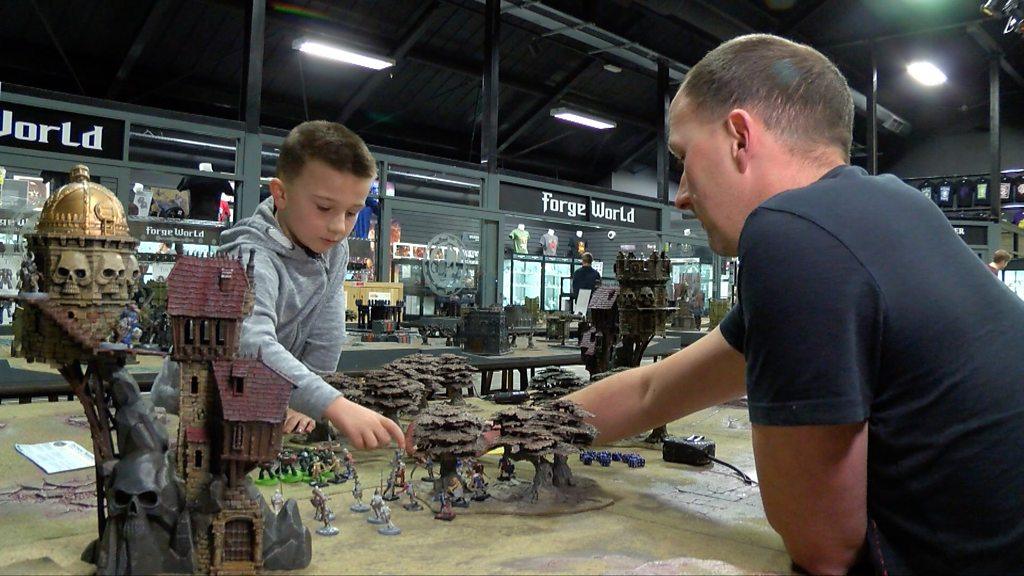
- Published25 March 2018
